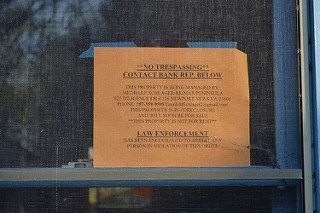If you’re an attorney engaged in mortgage assistance relief services,
you need to know about what you can charge your clients and when you have
to decline representation. If you’re a homeowner looking for legal
help, you need to know about what your attorney can charge you and if
your attorney can actually help you. The Federal Trade Commission (FTC)
publishes a great brochure about the MARS Rule and has a lot more information
about it. You
can find it
here.
The MARS Rule
Real Estate Law Attorneys
Many real estate lawyers, including Virginia real estate lawyers, are routinely tasked to perform many types of real estate legal services on behalf of their clients. For example, if your clients are facing foreclosure or short sale, you may need to help them understand the tax implications of debt forgiveness. Maybe you have a client that needs help understanding how to go through a loan modification. For many Virginia attorneys, loan modification help has become the bread and butter of our business, sadly. If you perform any relief services to help troubled homeowners pay their mortgages, you need to know about the MARS Rule.
Complying With the MARS Rule: Your Ethical Obligations as an Attorney
Generally, if you comply with your state bar’s ethical canons or obligations, you are complying with the federal MARS Rule. As an attorney, you need to do these three things to stay within the exceptions to the MARS Rule:
1. If you offer mortgage assistance relief services and legal guidance, helping homeowners understand the law;
2. You are barred in the state where your clients seek your services or where your client’s home is; and
3. You strictly follow your state’s law regarding your ethical obligations as an attorney.
In other words, Virginia attorneys, (and all other attorneys) don’t collect up-front fees unless you put them in a trust account and withdraw only after you earn them, keep detailed trust account records, don’t share your fees with non-attorneys, be careful with advertising and keep your clients informed throughout their cases. Also, be very careful that you’re not helping non-lawyers practice law: that’s aiding and abetting the unauthorized practice of law. A big no-no.
Legal Fees and the MARS Rule
You can charge your clients contingency fees, flat fees, hourly fees, or a combination of any fee structure, but you must make sure you place any unearned fees in a trust account specifically established for your clients.
Contact Us Today: If you’re looking for a Virginia real estate attorney, contact Keithley Law, PLLC today by calling (703) 454-5147 and schedule an initial consultation in our Fairfax law office.
Legal Disclaimer: Do not rely on this site for legal advice. The information provided on “Keithleylaw.com” is strictly for educational purposes and to provide you with general educational information about Virginia laws. Since state laws are subject to change, please schedule an appointment with our office to further discuss your personal situation. This public information is neither intended to, nor will, create an attorney-client relationship.



